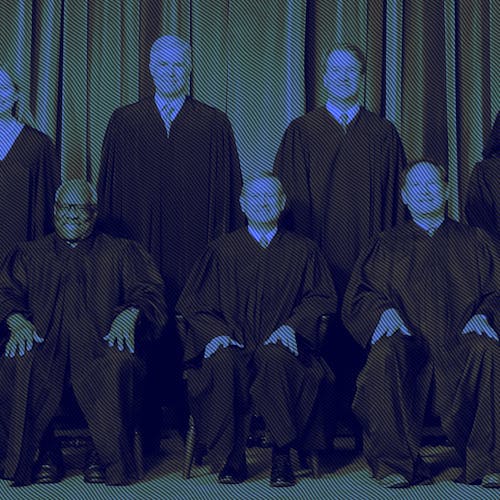FOWLER: President Trump failed to adequately recognize HIV/AIDS

World AIDS Day, on Dec. 1, is a day to honor those who have fought and are fighting HIV/AIDS. This year, the White House honored the date by displaying a red ribbon and releasing a proclamation regarding HIV/AIDS. President Donald J. Trump’s statement was similar to that of former President Barack Obama, in the years prior, but one large difference stirred up certain members of the LGBTQ and AIDS community. Trump’s statement was similar to his predecessors, but was missing the following line — “Gay and bisexual men, transgender people, youth, Black and Latino people living in the Southern United States, and people who inject drugs are at a disproportionate risk.”
Why is this slight significant? AIDS, originally called Gay-Related Immune Deficiency in its early stages, disproportionately affects gay people and, further, it disproportionately affects Black and Latino gay men when compared to white men. The damage the AIDS epidemic has done within the population of gay men who survived the epidemic is significant, and the memory is a huge portion of the collective conscious of gay men.
In an article published in Time Magazine, Tez Anderson, founder of "Let’s Kick ASS-AIDS Survivor Syndrome", discusses the effects of living through the AIDS epidemic as an HIV positive gay man. “I witnessed my loved one and a huge swath of my community die young — all the while fully expecting to be the next one to die.” As he continued to live with and be treated for HIV, Anderson realized he had PTSD-like symptoms regarding the AIDS epidemic. “It was like PTSD but seemed much more complex, given the duration of the deaths of the AIDS epidemic combined with a crippling fear of aging without any sense of future orientation,” he said.
As Anderson began to look further into the aftermath of the epidemic, he realized long-term survivors diagnosed with AIDS often killed themselves rather than continue to fight their illness. He found that long-term HIV/AIDS survivors were different from their recently-diagnosed counterparts, noting that long term AIDS survivors experienced accelerated aging and sometimes died from cardiovascular issues or deaths otherwise usually not related to AIDS. All of this goes to show that horrifying death of gay communities makes the history of the LGBTQ community and AIDS deeply intertwined. To ignore this is to ignore the fundamental ways in which gay people have been shaped by the AIDS epidemic. Although AIDS is obviously not a disease which affects gay people exclusively, they undeniably are a large part of the epidemic’s history.
This is not the first time accusations about the way Trump has handled the HIV/AIDs crisis has come to light. In June, five members of Trump’s HIV/AIDS council resigned. One of the people who resigned wrote an opinion article titled, “Trump Doesn’t Care About HIV. We’re Outta Here.”, citing many reasons as to why he felt Trump was apathetic to HIV/AIDS.
HIV/AIDS is an ongoing problem, but perhaps some of the reason people may not perceive it as such is because the narrative today often portrays a story where someone can be diagnosed with HIV and then live a fruitful and long life. Thankfully, in many cases this is true, but there are often things which complicate this possibility, and the idea that HIV can be treated effectively is dependent upon many complex variables people outside the illness may take for granted — for example, a person’s access to insurance. When considering the fact that the majority of the people diagnosed with AIDS are minority groups — Black, gay men are diagnosed the most, second to Latino men and finally white men, according to the Centers for Disease Control and Prevention (CDC) — and minority groups are more likely to be financially disadvantaged.
The idea that HIV is a livable disease became true for many with the Affordable Care Act (ACA). Before the ACA and the Medicaid expansion, people with HIV often had to wait until their illness worsened before they could be deemed eligible for coverage on its expensive medications and by this point, the disease was often much more severe. Access to insurance is incredibly important for both getting more people diagnosed with HIV if they have it, but also ensuring that people with HIV/AIDS can live as long as possible.
Although AIDS can happen to anyone, it undeniably affects certain groups to a higher extent. Gay men specifically have a history and consciousness deeply intertwined with living through the horrors of the AIDS epidemic, and today, people need to know facts about their risk of contracting HIV. World AIDS Day should inform and acknowledge, and Trump failed to adequately do this. At a time where HIV in Black men has increased rather than decreased over the years is proof of the urgency of the issue. HIV/AIDS does not have to be a death sentence, but in order for this to be true, people must be tested early and have adequate access to medical insurance. When presented with an opportunity to draw attention to the nuance of the HIV/AIDS problem in the United States, Trump’s statement falls flat.
Ashley Fowler is a School of Arts and Sciences first-year majoring in English. Her column “Sex and the City,” runs on alternate Mondays.
*Columns, cartoons and letters do not necessarily reflect the views of the Targum Publishing Company or its staff.
YOUR VOICE | The Daily Targum welcomes submissions from all readers. Due to space limitations in our print newspaper, letters to the editor must not exceed 500 words. Guest columns and commentaries must be between 700 and 850 words. All authors must include their name, phone number, class year and college affiliation or department to be considered for publication. Please submit via email to [email protected] by 4 p.m. to be considered for the following day’s publication. Columns, cartoons and letters do not necessarily reflect the views of the Targum Publishing Company or its staff.



